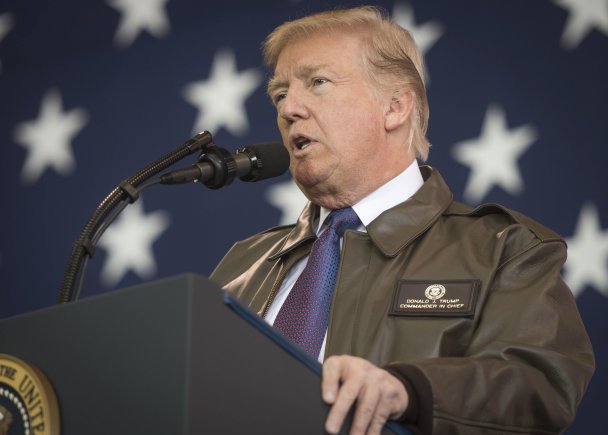President Trump isn’t holding back at all with his second term. He’s got a go big or go home plan to try to get American back on the right path. One of his first plans is to reinstate and expand his ban on transgender individuals serving in the U.S. military, issuing an executive order that sources say will take effect on his first day in office, January 20. The policy would go further than the restrictions enacted during Trump’s first term by mandating the removal of all transgender personnel currently serving, regardless of tenure or performance.
According to The Times, approximately 15,000 active-duty service members could be impacted. These individuals would be medically discharged, classified as unfit to serve, marking a sharp departure from the more lenient provisions of Trump’s original 2018 policy. That directive, which barred most transgender people from enlisting but allowed those already in service to remain, was reversed by President Joe Biden in 2021.
Biden’s reversal paved the way for transgender individuals to serve openly and access medical care, including s*x reassignment surgeries, through the military. Critics, including Trump and his allies, argue that the military has become a “woke social experiment” under Biden, prioritizing progressive social policies over combat readiness. Trump has vowed to refocus the armed forces on their core mission: defending the nation.
The expanded ban is likely to reignite heated debates about military policy and inclusivity. Supporters of the policy argue that accommodating transgender individuals imposes undue costs and logistical challenges on the military. They point to the financial burden of medical treatments, including hormone therapies and surgeries, as inappropriate expenditures for a defense institution.
Stephanie Miller, former director of military accession policy, estimated in 2021 that 1,000 to 8,000 active-duty personnel identified as transgender, with other studies suggesting the number could reach 14,700. Many conservatives contend that the military’s primary purpose is national defense, not funding expensive medical procedures.
The proposed order comes as the military grapples with severe recruitment shortfalls across nearly all branches, a crisis some attribute to the politicization of the armed forces under the Biden administration. Critics of Biden’s policies claim that the focus on progressive initiatives has alienated potential recruits and undermined morale among service members.
Trump’s renewed ban will likely face significant pushback from LGBTQ+ advocacy groups and Democratic lawmakers, who argue that the policy discriminates against individuals based on gender identity. Legal challenges are almost certain, mirroring the fierce opposition to his 2018 policy.
As Trump prepares to take office, the decision underscores his intent to deliver on promises to reshape the military in line with his “America First” agenda, focusing on strength, readiness, and traditional values.


Leave a Comment